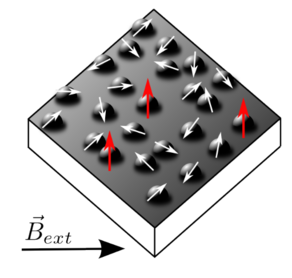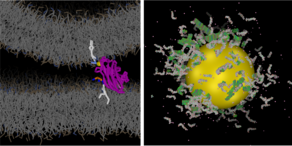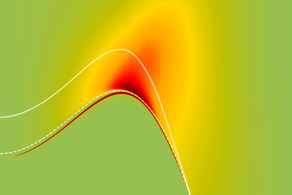PhD Defense of Gary Schmiedinghoff
- Events
- Uhrig
- PhD defense
Applications and Extensions of Flow Equations to Closed and Open Quantum Systems
Flow equations, also known as continuous unitary transformations, provide a powerful renormalization tool to transform a Hamiltonian and observables to an effective basis, where they take a more amenable form. However, unitary transformations often fail for non-Hermitian Hamiltonians, which appear, for instance, in dissipative systems. Furthermore, flow equation approaches often struggle in the vicinity of critical points.
This thesis aims to cover three separate problems regarding flow equations:
Spin ladders are crucial models for the description of strongly correlated quantum systems. An advanced method of probing such systems in various excitation channels is resonant inelastic X-ray scattering, but the theoretical prediction of the corresponding spectral densities is intricate. In this thesis, we compute the spectral densities of a spin-1/2 Heisenberg ladder with the flow equation method and predict novel three-triplon bound states. We demonstrate that these bound states only arise in the presence of irreducible three-triplon interactions by exploiting the strengths of our method.
Flow equations often fail in the vicinity of a critical point due to the divergent correlation length. The method could be improved by performing it in momentum space, where strongly delocalized physics can be described more easily. To this end, we investigate the transverse-field Ising model and show that the flows of various coefficients have a common convergence behavior, which offers a prospect for considerable improvements in future works. Additionally, we propose and test truncation schemes in momentum space, which could prove useful to describe low-energy physics.
Another current problem is the description of open quantum systems, i.e. quantum systems which are affected by dissipation because they couple to an external bath. Dissipative flow equations provide a framework to treat the non-Hermitian Hamiltonians and Lindbladians appearing in such systems. We propose a novel generator scheme based on the particle-conserving generator and benchmark the convergence speed and accuracy in spite of truncation compared to previously considered generators. We demonstrate that our proposed generator scheme provides high convergence speed and excellent accuracy. Furthermore, we encapsulate all currently known dissipative generator schemes in a universal framework, which can be used to propose various novel generator schemes favoring either convergence speed or accuracy.







